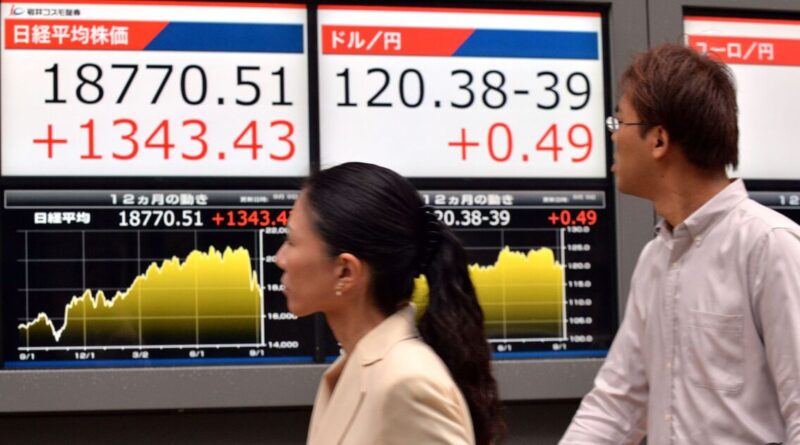Global financial meltdown fears after £40bn plunge in a single day | World | News
Global financial markets are in the grip of severe volatility as the abrupt unwinding of yen carry trades sends shockwaves across the world.
Dutch Mendenhall, author and founder of RADD Companies, has warned that we are witnessing the catastrophic consequences of what he calls “the dark side of cheap money”.
“This is the dark side of cheap money—when it unravels, it doesn’t just sting. It shreds,” Mendenhall told Express.co.uk, highlighting the deep risks embedded in financial systems that have long relied on low-interest rates to fuel growth.
The chaos began with the Bank of Japan’s surprise decision to raise interest rates for only the second time in 17 years. This move caught investors off guard, triggering a mass unwinding of yen carry trades.
In these trades, investors had borrowed trillions of yen at near-zero interest rates to fund high-yield assets elsewhere. But as the yen surged in value, these trades quickly turned from highly profitable to disastrous, forcing a global sell-off.
The repercussions have been widespread and severe. The FTSE 100 index in the UK, for instance, saw its market capitalisation plunge by a staggering £40 billion in a single day.
Mendenhall points to this as a clear sign of how deeply interconnected and fragile global markets have become, saying: “When the cheap money dries up, the fallout is enormous. We’re seeing that now with the panic spreading across equities, commodities, and bonds.”
Analysts at JP Morgan have underscored the gravity of the situation, noting that the unwinding of these trades is still only “50 to 60 percent complete.”
Arindam Sandilya, co-head of global FX strategy at JP Morgan, has echoed these concerns, suggesting that more turbulence lies ahead as traders continue to offload risky positions.
“If you’re worried about financial instability, keep a cool head and focus on the fundamentals”, Mendenhall said.
“The global economy is volatile, but this is not the time for panic selling.”
Instead, he recommended strengthening cash positions and investing in sectors that are less sensitive to economic swings, such as utilities, healthcare, and consumer staples.




